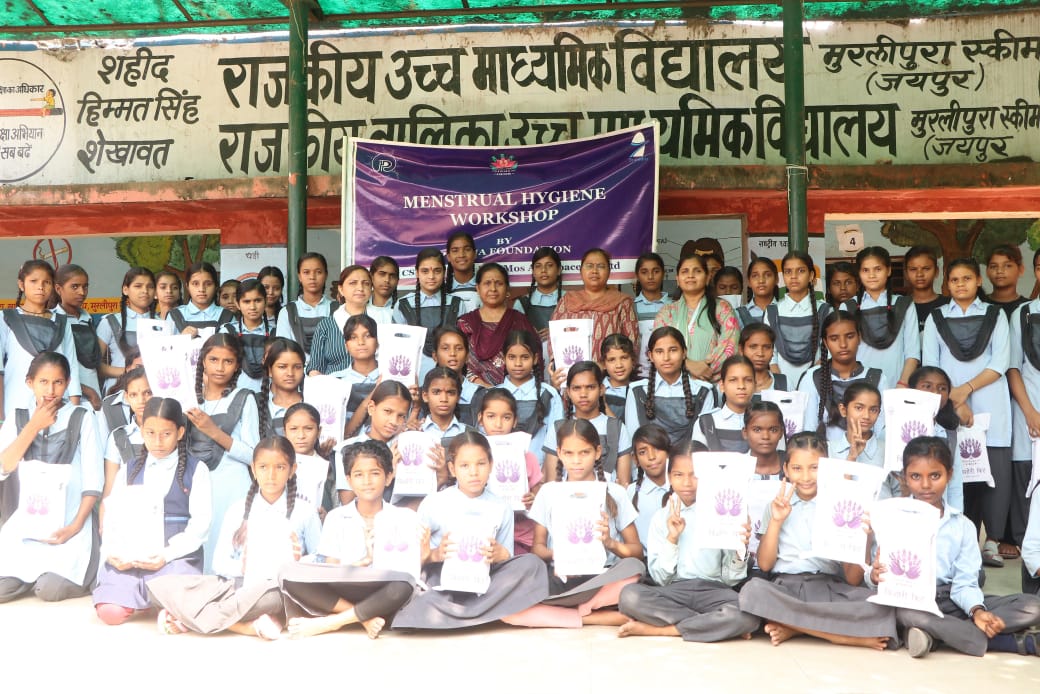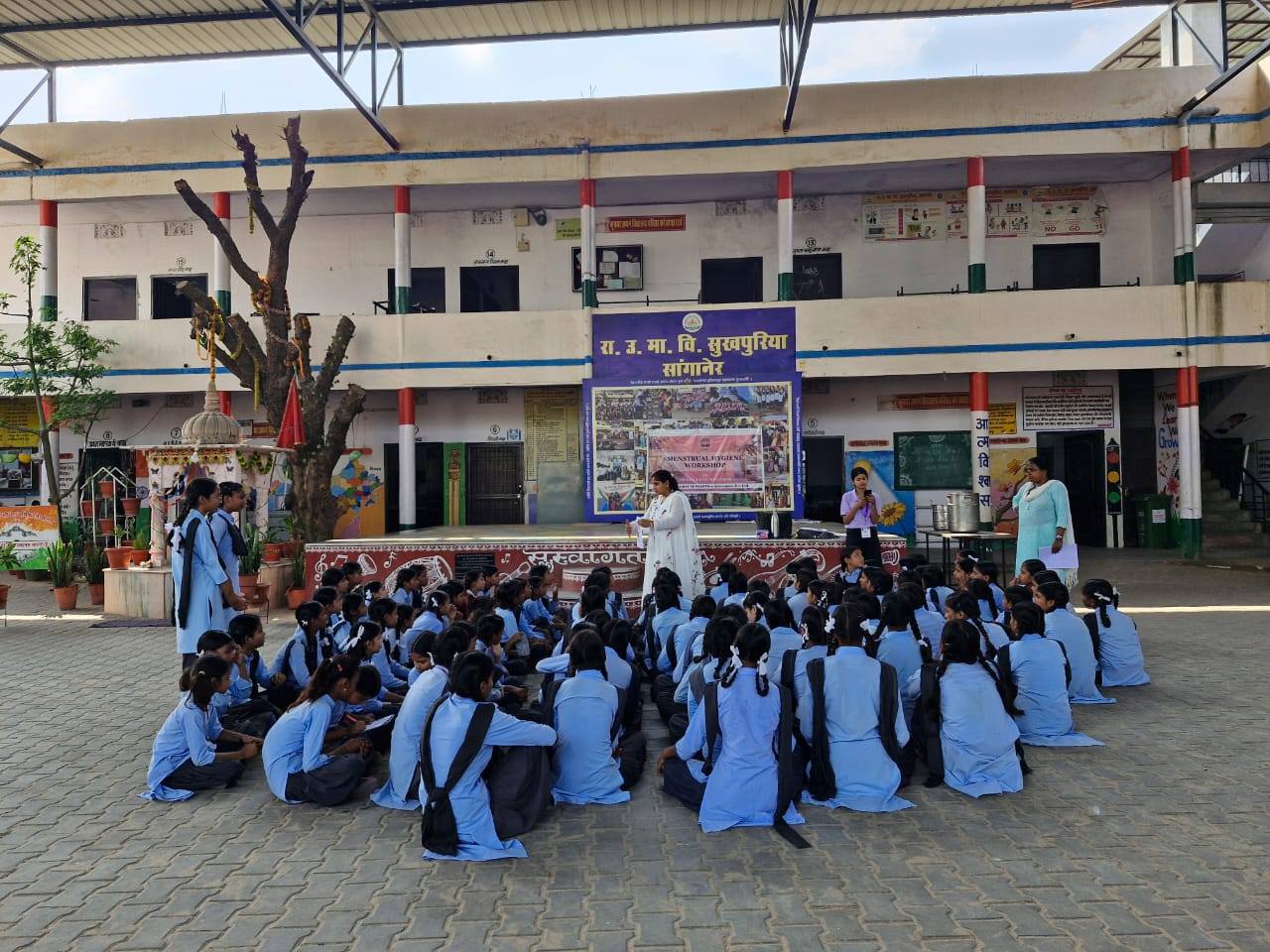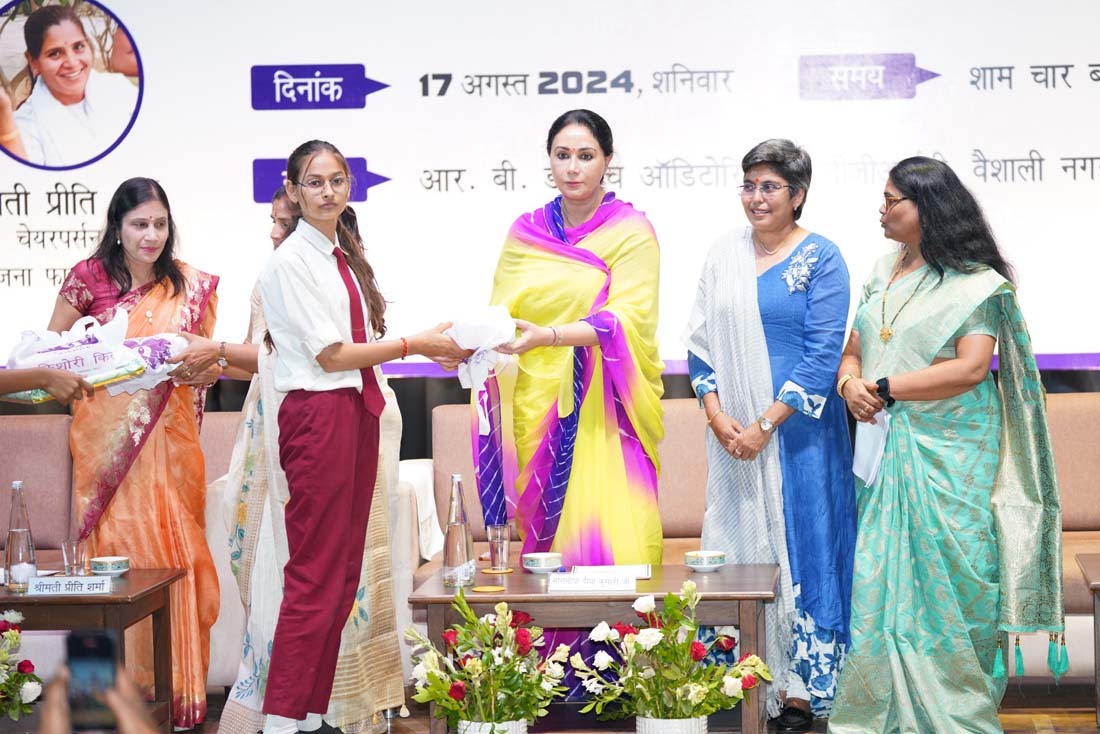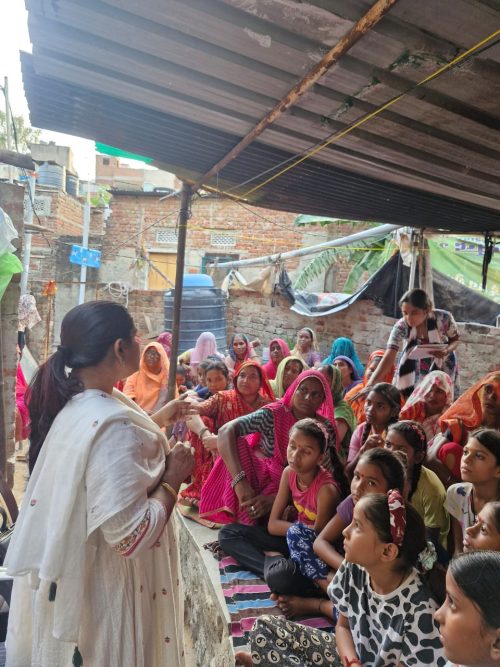“I am hopeful that one day I will hear girls speaking about their menstrual cramps with the same ease with which they say they have a headache, without any shame attached to it,” says Preeti Sharma, founder of the Prazna Foundation.
A 2019 report by NGO Dasra states that a staggering 2.3 crore girls in India drop out of school each year due to insufficient access to menstrual hygiene. The absence of sanitary pads, clean water and sanitation facilities, coupled with the societal stigma surrounding menstruation, exposes girls to serious health issues and, at times, social ostracism. This is what Preeti hopes to change.
Growing up in Gokul, a small town in Uttar Pradesh, in the 1990s, Preeti experienced the social stigma surrounding menstruation firsthand. Her school, like several others, had no proper washroom facilities, no water, and no safe space for young girls who had hit puberty. All the practicalities and the social stigma around menstruation invariably discouraged girls from continuing school.

“The school that I went to already had a lower number of girls than boys. And it would dwindle even further when the girls, once they reached a ‘curtain age’ would drop out of school,” she tells The Better India.
When Preeti had her daughters and saw them struggle in their schools, she realised the extent of the problem.
“My daughters go to a much better school than I did. So, when they got their period, the problem wasn’t water or cleanliness. It was that they still don’t feel like the environment was safe enough to speak about it openly,” Preeti shares.
Getting rid of taboos
In May 2018, Prazna Foundation was established to ensure that girls in underprivileged areas would not face the same challenges Preeti faced. The organisation began as a response to the lack of menstrual hygiene education, access to sanitary products, and the silence surrounding menstruation.
“The goal is to make menstrual health education a universal right and to get rid of the barriers that prevent underprivileged children and women from getting proper education and healthcare,” says Preeti.
To achieve that goal, Prazna launched Project Kishori, which aims to educate young girls about menstrual hygiene and provide them with essential hygiene kits.

Today, Project Kishori is the cornerstone of Prazna’s efforts in creating menstrual health awareness among schoolchildren, especially in marginalised communities. “Sanitary pads are affordable now, the Government also hands them out. But we have worked with women who come from the labour class and don’t even have the money to buy underwear,” says Preeti.
To help women prioritise hygiene during menstruation, the foundation gives women a comprehensive kit of essentials that includes underwear, garbage bags (to teach proper disposal), antiseptic liquids for hygienic wash, and paper soaps to encourage proper handwashing habits.
Beyond the kits, Project Kishori largely focuses on educating girls about their bodies, helping them understand the menstrual cycle, and creating a safe space for them to ask questions.
“We’ve covered over 100 schools within two months, both in and around Jaipur. And these are remote areas where nobody ever goes,” Preeti mentions. Through this outreach, Prazna has already educated over 20,000 women on menstruation and hygiene.
What’s unique about Project Kishori is its approach to breaking down the taboos around menstruation through peer-to-peer interaction. In each school, ‘Kishori Clubs’ were established, bringing together girls who would lead conversations and share their experiences.
“I have seen a lot of girls, especially if they get their periods young, get very nervous. They have no idea how to deal with it. What Prazna and Preeti do is give a certain sense of reassurance,” says Kavita Sharma, principal of a government school in Jaipur.
“They also help girls navigate this next stage of their life, whether it be emotionally, mentally or physically, because it is a lot for one small person to go through on their own,” she adds.
Building trust and understanding
By creating an environment where girls feel comfortable, the programme encourages ongoing conversations about menstrual health. One strategy employed by Prazna was to use female teachers as intermediaries — trusted adults who could help facilitate conversations between the girls and the organisation. This method not only helped ensure privacy and trust but also empowered local educators to take ownership of the initiative.

The programme also addresses nutritional and dietary needs. “Way too many young girls have anaemia and you can’t constantly take supplements for that. They need to be educated about good food as well, and when the situation is bad we do involve and educate the parents too,” Preeti explains.
“I help people understand technical know-hows. I’ve been helping with workshops since the start of the foundation, so I know what kind of questions people have regarding menses and the myths attached to it,” says Dr Shailja Jain, a gynaecologist and close associate of Preeti. She trains the volunteers so that they are properly prepared when speaking to inquisitive young girls who might have some interesting questions.
The foundation also works closely with Deepika Godara, an advocate who engages with slum dwelling women and gives them a run down of their basic human rights. “Sure our country got independence in 1947, but the women are still not free. There’s domestic abuse, a lack of proper healthcare, and so much misinformation,” she says.

By informing women about helpline numbers, government policies, and other resources they have at their disposal, she gives them the power to take charge of their own lives. “Many complaints of domestic abuse filed by slum or labour women are not taken seriously. So, we ask the women to make sure that when their complaint is being written down, it should be written on a paper of a particular colour, so they know it’s actually being filed,” shares Deepika.
Making men a part of the conversation
One of the most inspiring aspects of Prazna’s work is the way they’ve involved male teachers and male students in the conversation. Historically, menstruation has been seen as a topic for women only which makes it an isolating ‘us and them’ experience. “We had gone to a government school, and a teacher asked us to include the boys of the class in the workshop as well. And we were more than happy to include this idea in our manner of working,” Preeti notes.
Male teachers and volunteers have also been involved in workshops, breaking down barriers of shame and making the topic more inclusive.
The results have been encouraging.
“I kind of knew what menstruation was. But earlier, I used to feel hesitant to speak about these things, especially at home. I used to feel that maybe this is something that is supposed to be kept a secret. But then when we saw our teachers, and people from Prazna, speak about these things, that hesitancy has gone away,” shares Sonali, a Class 10 student from Jaipur.
Beyond its grassroots work, Prazna also advocates for comprehensive national policies. While there are a lot of programmes which distribute pads, Preeti believes that menstrual education needs to go beyond just providing products.
“It’s good to give pads, but there should be a programme that happens at least every few weeks where the conversation is reopened and there is a continuous dialogue. Because a taboo can’t be eased with a single workshop,” Preeti concludes.
Edited by Arunava Banerjee, All images courtesy Preeti Sharma

No comments:
Post a Comment